Yenching Academy and Peking University Hall co-launched an online project for the Hall’s 2022 Art Month for New Comers. Between August 21 and October 9, YCA Dean Dong Qiang gave four online lectures themed “Classicism, Romanticism and Cultural Consciousness: Chinese and French Literature and Art,” focusing on art, cultural institutions, Sino-French cultural exchange, and mutual learning between the East and the West. In his lectures, Professor Dong discussed the beauty of classicism and romanticism in Chinese and French literature and art that has charmed the world.
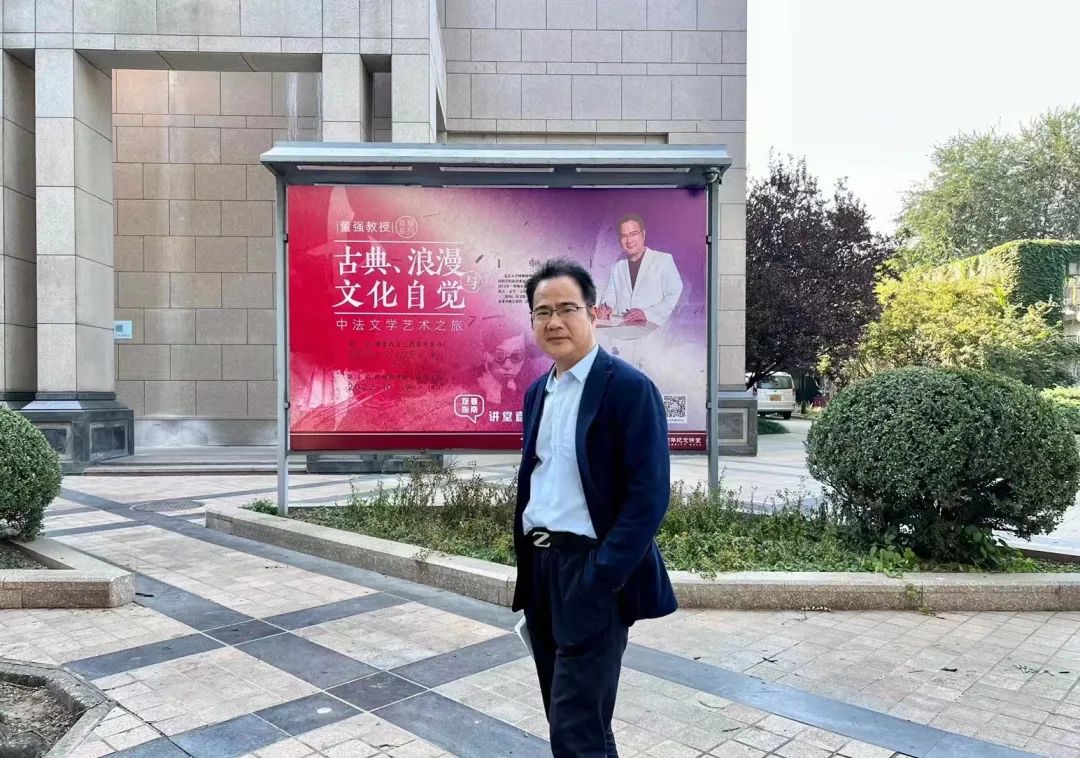
Professor Dong, known for his capacity as Dean of Yenching Academy, is a Boya Distinguished Professor, doctoral advisor, and former chair of the French Department of the School of Foreign Languages, PKU, and boasts the first Chinese academician of the Institut de France in its more than 200-year history. The Dean once studied under Milan Kundera and spent 12 years in France. He has been engaged in studying the French language, literature, and culture and the comparative study of Chinese and French cultures. Professor Dong has published over 20 books and translated works, including the French translation of The Analects and the Chinese translation of Milan Kundera’s L’art du roman. He and Nobel Prize-winning French novelist Jean-Marie Gustave Le Clézio have co-authored the book Tang Shi Zhi Lu (The Road of Tang Poetry). An eminent scholar, translator, and cultural worker, Professor Dong Qiang has been dedicated to cultural exchange between China and France. Nourished by both cultures, he continues to be a ferryman on his voyage of intercultural communication. He passionately illuminated the audience with the charm of Chinese and French literature and art.
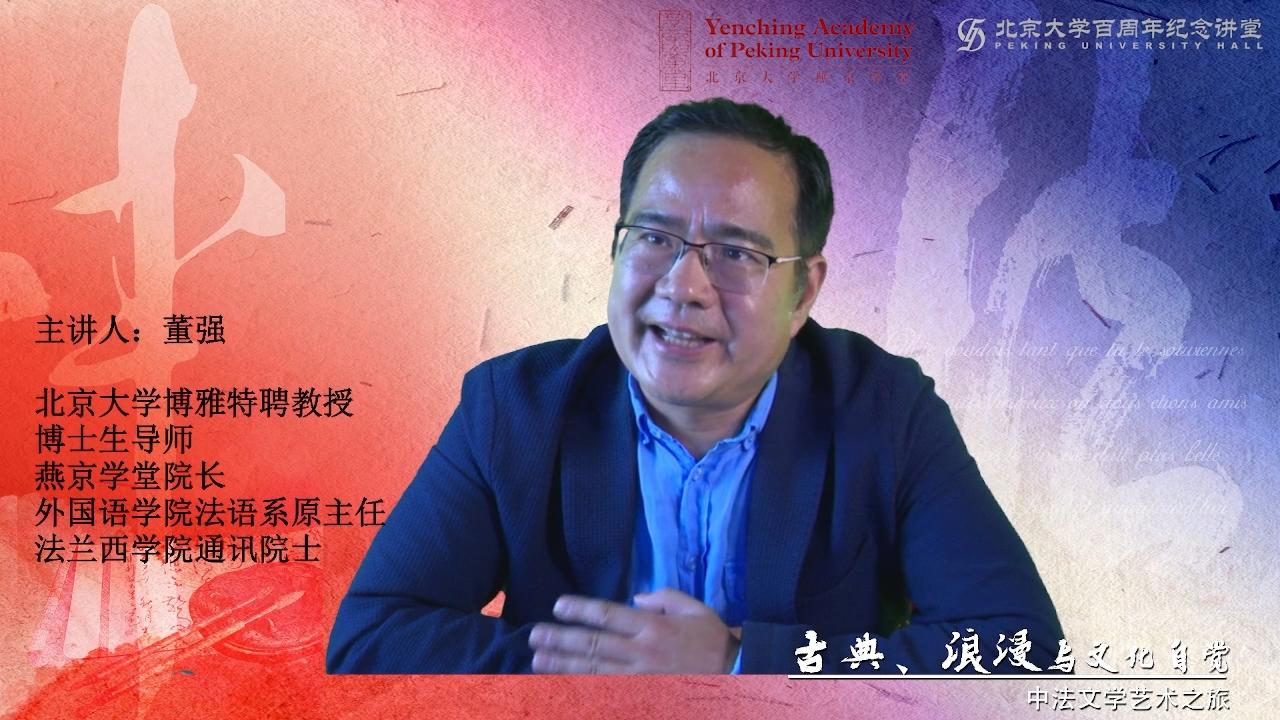
Professor Dong Qiang started his voyage into the romantic French culture from Impressionism in “Monet: After Impression Sunrise”, and sailed into new waters of the French art explored by Claude Monet with his talent in painting. The second online lecture, “Academicism and Culture in France”, traced romanticism back to classicism, examining how the system of art developed in France and how the French Academy has facilitated the glorious French literature and art. The next talk was “Young Fu Lei in France”. In this session, Professor Dong Qiang illustrated a full image of the eminent translator and cultural figure Fu Lei, whose life story inspires one to rethink cultural awakening and consciousness in modern China. In the fourth and last lecture, Professor Dong Qiang invited the audience to trace ancient Chinese poetry in France over the past two centuries, along “The Culture-Bridging Road of Tang Poetry”, and to enjoy the magnificent scene on the pinnacle of human literature. The Nobel Prize-winning Chinese novelist Mo Yan and his French counterpart Le Clézio joined Professor Dong Qiang online. Mo Yan praised the book The Road of Tang Poetry, a brainchild of the duo of great minds. Le Clézio talked about his decades-long love for Tang poetry and the beauty of Tang poetry in his eyes. Professor Dong Qiang’s lectures were like a key that opened the gate to the vast expanse of Chinese and French literature and art.
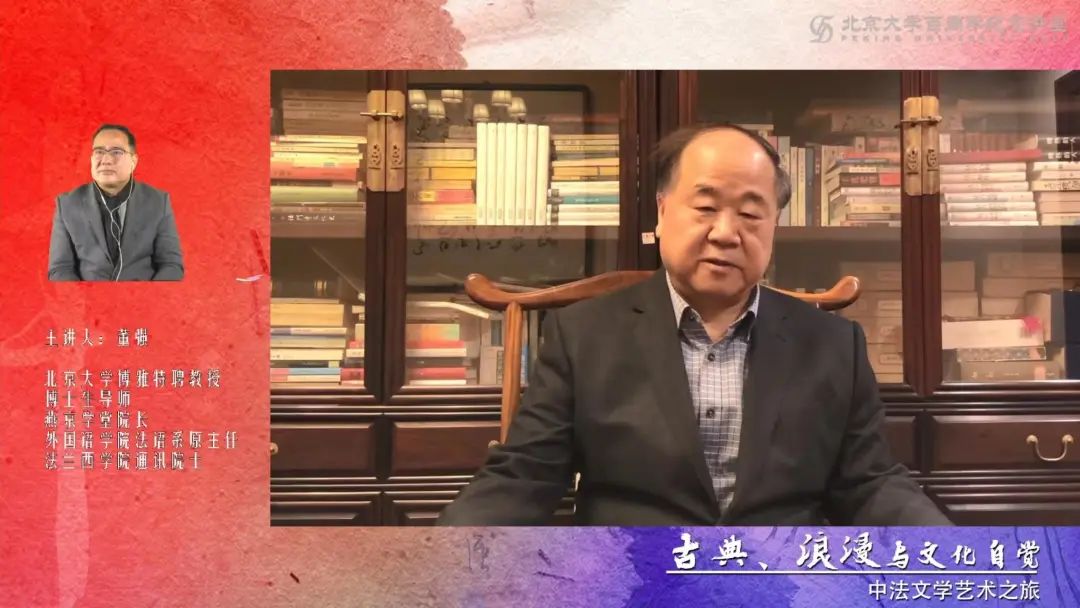
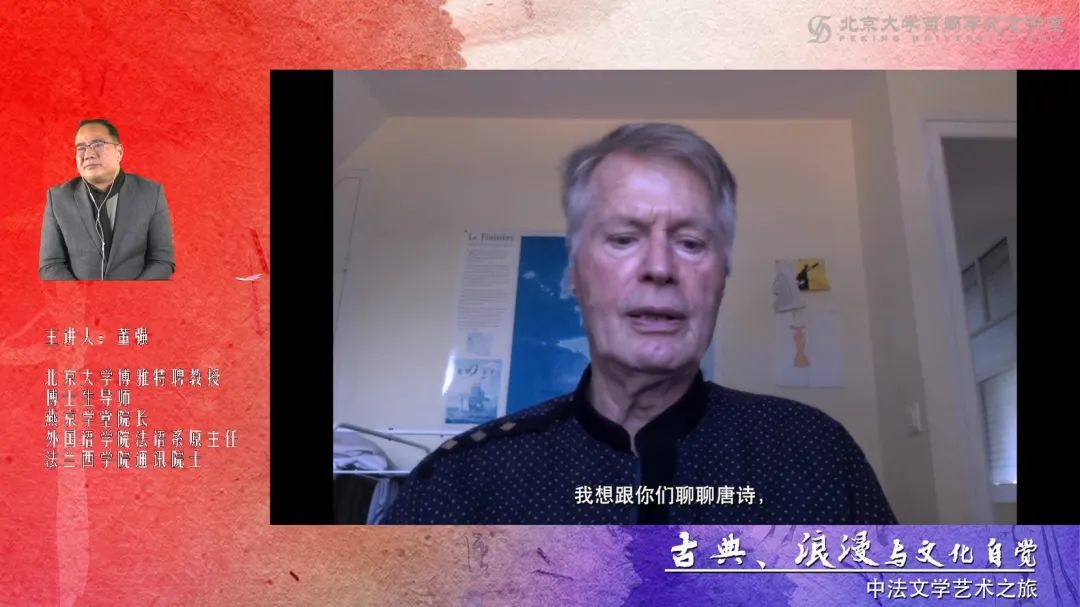
As an eminent scholar experienced in cross-cultural communication, Professor Dong Qiang “tailored” the lecture series for PKU students and teachers, sharing with the audience many first released results of his research. The professor was admired for his witty, resourceful talks full of academic details. Likewise, the Dean’s thought-provoking lectures that integrated his scholastic insights and life experience inspired the audience, and they had further discussions with Professor Dong Qiang after the sessions. A PKU alumnus himself, Professor Dong Qiang was nourished by lectures and events held at the Peking University Hall during his university years in the 1980s. He cherished his lecture time at the hall and promised to be part of the hall’s future projects.
Peking University Hall was originally the canteen hall in the 1950s and turned into the lecture hall in the 1980s. It plants itself in the University’s culture and traditions and builds itself into an arena for highbrow art and high-caliber talents, and an active on-campus player to hand down aesthetic and cultural traditions of the University. Yenching Academy of Peking University offers an interdisciplinary master’s program, drawing upon the University’s strengths in humanities and social sciences, to foster talents who understand Chinese society from a global perspective. YCA and Peking University Hall collaborated to integrate the University’s tradition of aesthetic education and the Academy’s strength in intercultural communication. It was an excellent and successful attempt to forge intercultural exchange by fully using intra-campus art and academic resources.
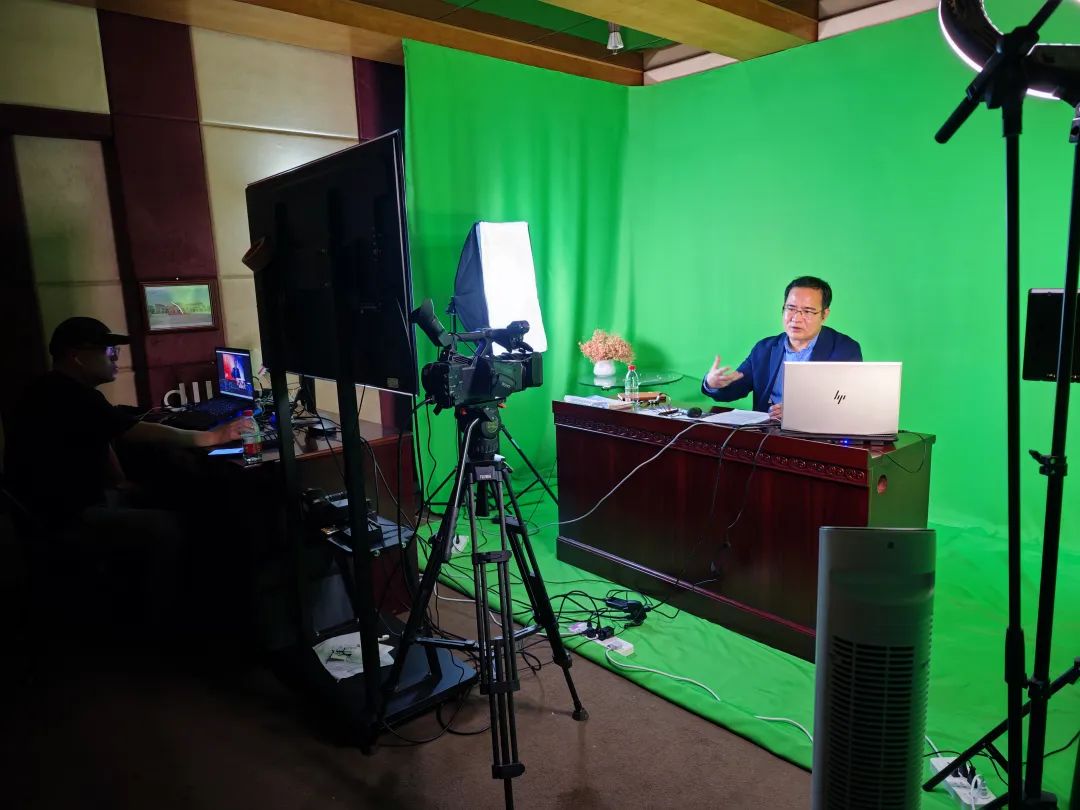
President Xi Jinping highlighted at the opening ceremony of the Conference on Dialogue of Asian Civilizations: “Diversity spurs interaction among civilizations, which in turn promotes mutual learning and further development.” The world has become a splendid place because of diverse civilizations, which, in turn, advances in harmony thanks to intercultural communication. Through his online lectures, Professor Dong Qiang bridged the splendid Chinese and French cultures, showing his audience the vast expanse of human civilizations.
Read more:
https://mp.weixin.qq.com/s/mZNLyeX96zCuE23CajCmIA
https://mp.weixin.qq.com/s/h3Y6pbwTv1BQ-MWj9ngP1Q
https://mp.weixin.qq.com/s/mPyXffluSBr48oHk3WIuYA